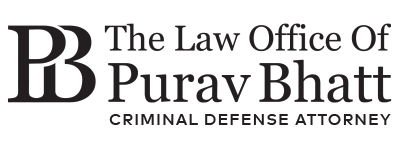If you have been arrested or convicted of a crime in the past, you might be wondering if there’s a way to clear your criminal record and get a clean slate. Fortunately, in some cases, it is indeed possible to have your record expunged or sealed, which means that it will be erased or hidden from public view.
Expungement can help you move on from your past mistakes and make it easier to find employment, housing, and other opportunities. However, not everyone is eligible for expungement, and the rules vary depending on the type of offense on your record.
In this post, we’ll explain the basics of expungement and how one of the best Illinois expungement attorneys can help you clear your criminal record.
What Is Expungement?
Record expungement in Illinois is a legal process that allows an individual who has been arrested or convicted of a crime to clear it from their criminal record. Expungement essentially erases the record of the arrest or conviction as if it never happened, which means it will no longer appear on background checks performed by employers, landlords, or other entities.
In Illinois, the process of expungement can vary depending on the type of offense, the outcome of the case, and other factors. Generally speaking, you may be eligible for expungement if:
- You were arrested but never charged.
- You were found not guilty of the charges.
- Your charges were dismissed by the state.
- You were sentenced to supervision for a conviction and successfully completed your sentence.
People who have been a victim of criminal identity theft, or whose arrest did not lead to a guilty verdict, can have their arrest records expunged immediately.
What Is Criminal Record Sealing?
If you are not able to clear your record through expungement, you might still be able to have it sealed. This means that your criminal history will be hidden from public view. Only a few organizations, like law enforcement, certain government agencies, and some employers, will still have access to your criminal record after it’s been sealed.
People who have been convicted of a misdemeanor or felony in Illinois typically have to wait 3 years after completing their sentence to petition the court. Please note that some convictions cannot be sealed. You should talk to a professional Chicago criminal defense attorney who understands the regulations in Illinois to find out if you are eligible to have your record sealed.
Illinois record expungement and sealing laws can be tough to navigate, and the process can be complex and time-consuming. Call The Law Office of Purav Bhatt at 773-791-9682 to work with an experienced Chicago expungement attorney who can guide you every step of the way.
Expungement vs. Sealing: Key Distinctions
There are two ways to clear your criminal record in Illinois: expungement or sealing. While both methods have similar goals, there are some key differences in the legal process and the final results.
Expungement
Expungement is the process of completely erasing your criminal record. Once your record is expunged, it will be as if it never existed and will not appear on background checks. Your name will be removed from the Clerk’s Office docket system and the court file will be sealed. Only you and certain law enforcement officials will have access to the expunged record.
While the general public and most private entities will not be able to access your expunged record, there are a few exceptions. The Department of State Police may share/circulate your expunged record if required by law, and the Department of Corrections may also have access to it if you are subsequently convicted of another offense.
Sealing
Sealing is a process that makes your criminal record inaccessible to the public. The record still exists, but it will not be visible on most background checks and most employers will not be able to find it. It’s important to note that some employers, such as schools, financial institutions, park districts, and other government agencies, can access sealed felony convictions if they require a fingerprint-based background check for employment.
When your record is sealed in Illinois, it becomes inaccessible to the general public and cannot be obtained without a court order to unseal it. Your name is removed from the Clerk’s Office electronic docket system, and the court file is impounded. Any local police departments that arrested you, as well as the Illinois State Police and FBI, are also required to seal their records. However, law enforcement agencies (the police, courts, prosecutors, and the Department of Corrections) can still access the sealed record.
Sealing is generally easier to achieve than expungement, and many more offenses are eligible for sealing. In Illinois, most misdemeanor offenses and some non-violent felony offenses can be sealed. On the other hand, there are some offenses that cannot be sealed, such as DUIs and sex crimes.
Both expungement and sealing can help you move on from your criminal record. Where expungement completely erases your record, sealing makes it inaccessible to most people. Expungement is generally harder to obtain, but it provides a more complete solution for those who want to completely clear their record and get a fresh start. Sealing is easier to obtain and can be a suitable option for those who want to minimize the impact of their criminal record on their future opportunities.
Qualifications to Be Eligible for Expungement
To be eligible for criminal record expungement in Illinois, you must meet certain qualifications, including:
- The offense you were convicted of must be eligible for expungement under Illinois law.
- You must have completed all the terms of your sentence, including any probation or parole.
- You cannot have any pending criminal charges or convictions.
- You must wait a certain amount of time after completing your sentence, depending on the offense.
- You must not have any other criminal convictions on your record, except for minor traffic offenses.
- You must not have used court supervision for the offense you want to expunge.
- You must not have had any other criminal offense expunged or sealed in the past.
In addition to meeting the above criteria, the felony offense or misdemeanor must also be eligible for expungement under limited circumstances. Misdemeanor and felony offenses, as well as some juvenile offenses, may be eligible for expungement if they meet certain criteria. Generally, offenses that are eligible for expungement in Illinois include:
- Arrests that did not result in a conviction.
- Supervision for certain traffic offenses.
- Some misdemeanors, such as minor drug offenses, theft, or property damage, and some domestic violence offenses.
- Some Class 3 and 4 felonies, such as forgery, deceptive practices, or certain drug offenses, depending on the circumstances.
- Some juvenile offenses, depending on the circumstances. For instance, if you were arrested or charged as a juvenile and were not adjudicated delinquent (i.e., not convicted), or were found to be delinquent for a minor offense.
It’s crucial to note that not all offenses are eligible for expungement in Illinois, and some offenses may have additional requirements that must be met. It’s always best to consult with a Chicago criminal defense attorney to determine if your record is eligible for expungement – someone who has been through the legal minefields before and has a deep understanding of criminal law.
Crimes That Are Not Eligible for Expungement
There are certain crimes that are not eligible for record expungement, including:
- DUI offenses resulting in death or great bodily harm
- Reckless driving
- Domestic battery
- Sex offenses involving minors
- Aggravated battery with a firearm
- Any felony committed while in the capacity of a teacher
- Any felony requiring registration under the Sex Offender Registration Act
- Some felony drug offenses (including possession with intent to deliver, drug trafficking, or any offense that was committed on or near school grounds)
- Felonies that resulted in death or injury
This is not an exhaustive list and there may be other offenses that are not eligible for expungement. However, even if your offense is not eligible for expungement, you may still be able to have your record sealed. It’s best to consult with an experienced Chicago expungement attorney to determine your options for clearing your criminal record.
How Long Does the Expungement Process Take?
The length of time it takes to expunge a criminal record in Illinois can vary, depending on the specific case and circumstances involved. In most cases, the process takes 4–6 months.
Once your eligibility for expungement or record sealing is determined, the next step is to file a petition with the court.
After filing a petition for expungement, the state’s attorney and other agencies involved (i.e., the arresting police department and Illinois State Police) have up to 60 days to object. If there is an objection, a hearing may be required, which can further delay the process. Additionally, the agencies that have records of the conviction have up to 60 days to expunge or seal them after the petition is approved. It is recommended that you start the process as early as possible instead of waiting until you apply for a new job or want to take out a loan.
Waiting Period for Expungement in Illinois
The waiting period for expungement varies, depending on the type of offense and the outcome of the case. For arrests or charges that did not result in a conviction, there is no waiting period. You can file for expungement immediately after the case is dismissed or you are acquitted.
For most misdemeanor convictions, you must wait at least 2 years from the date of conviction or the completion of your sentence, whichever is later. Taking this into account, some specific misdemeanors, such as domestic battery, require a 5-year waiting period.
For most felony convictions, you must wait at least 5 years from the completion of your sentence, including any probation or parole. Moreover, certain serious felony convictions, such as those involving violence or sexual assault, are not eligible for expungement.
The waiting period begins after you have completed all of your obligations related to the conviction, including any fines, restitution, or community service. During this waiting period, you must avoid any new criminal charges or convictions, as this may make you ineligible for expungement.
Steps to Get Your Court Records Expunged in Illinois
If you are eligible to have your criminal record expunged or sealed, you can take the following steps:
Hire an Experienced Lawyer
Hiring an attorney is not mandatory to petition for expungement in Illinois. You have the right to represent yourself in court and file a petition for expungement on your own. That said, having a Chicago expungement attorney by your side can be critical to your case. The legal process can be complex and confusing, and any errors or mistakes might lead to delays or denials of your petition.
A qualified attorney can help you navigate the process and ensure that all necessary paperwork is completed accurately and on time. They can help you determine your eligibility and advise you on the best course of action based on your specific circumstances. They can help you gather the required documentation and evidence to support your case. They will also represent you in court (if necessary).
Having a Chicago expungement lawyer on your side can increase your chances of a successful expungement and make the process smoother and less stressful for you.
Get a Copy of Your Criminal Record
To begin the process of expungement, your attorney will contact the Illinois State Police Bureau of Identification to obtain a copy of your criminal record.
Determine Your Eligibility
Next, the lawyer will review your criminal record and determine which charges are eligible for expungement under Illinois law. To determine if your criminal record is eligible for expungement or sealing, it’s important to provide information about your past arrests, which includes:
- The date you were arrested
- The law enforcement agency that arrested you
- The charges against you
- The outcome of each case (known as a disposition)
- The date that your case or sentence was completed
If you have a copy of your Chicago RAP (Record of Arrests and Prosecutions) sheet, it can be really helpful for your lawyer to determine your eligibility. Your Illinois RAP sheet only contains information about arrests that occurred in Illinois.
Obtain Necessary Court Documents
The next step is to obtain certified copies of all court documents related to your case. These include:
- Petition to Expunge or Seal Records: This document requests that the court expunge or seal your criminal record.
- Order for Expungement or Sealing: This is signed by the judge if your petition is granted. It instructs the relevant government agencies to expunge or seal your record.
- Certificate of Eligibility: This is issued by the Illinois State Police and certifies that you are eligible for expungement or sealing.
- Copies of Court Documents: You will need to provide copies of any court documents related to your case, including the charging documents, disposition, and sentencing order.
- Proof of Service: You will also need to provide proof that you have served a copy of your petition to the necessary government agencies, including the prosecutor, arresting agency, and the Illinois State Police.
Please note that the specific court documents required may be different, depending on the circumstances of your case and the jurisdiction in which you are filing. We recommend you seek the assistance of a capable attorney to help you navigate the expungement process and ensure that all necessary documents are properly filed.
Prepare and File Your Petition
Once you have all the documents you need, complete the necessary forms and file your petition for expungement with the circuit court in the county where your case was heard. The forms you need may vary depending on the county in which you (i.e., the petitioner) live.
These forms must be completed accurately to ensure a successful expungement or sealing process. Even a single mistake can delay the process by months or result in the court rejecting your petition. This is why you need a Chicago expungement attorney to at least help prepare and file the necessary forms.
Serve Notice on Relevant Agencies
Next, you will need to serve notice of your petition on relevant agencies, including the arresting agency, the state attorney’s office, and the Illinois State Police.
Attend Court Hearing
You will be required to attend a court hearing where the judge will review your petition and make a decision on whether or not to grant the expungement of criminal records.
Follow-Up on Expungement Order
If your expungement is granted, you will need to follow up with law enforcement agencies to ensure that your criminal records have been properly expunged. If the order is denied, however, consult with your attorney about your options for appeal.
Benefits of Hiring an Expungement Attorney
If you have a criminal record, you are already aware of the challenges that come with it. Your record can make it difficult to find a job, get approved for housing, or even receive financial aid. Fortunately, you may be eligible to have it sealed or expunged for good. Unfortunately, navigating the complex legal process can be overwhelming and any mistakes can be costly. Hiring a Chicago expungement lawyer to help offers many benefits:
They Make the Process Less Daunting
Illinois expungement attorneys who have previously handled cases like yours have a thorough understanding of the complex expungement laws and procedures. Since they know all the right steps to follow, they can prevent delays and potential mistakes that could otherwise prolong the process. They can also provide guidance and support throughout the expungement process, answering any questions or concerns that may arise.
They Increase the Chance of a Successful Outcome
Expungement involves a lot of paperwork that must be reviewed by a judge. If you make mistakes on the forms, your request may not be accepted. This is why it is essential to hire an experienced Chicago expungement attorney who can help you fill out the necessary paperwork correctly. The lawyer’s expertise can increase your chances of having your application accepted by the judge.
They Can Represent You in Court
Having a lawyer to represent you in court during the expungement process can give you a lot of confidence and peace of mind. If or when the time comes, they can argue your case before the judge, making sure your voice is heard and that your rights are protected. Attorney representation is especially important if there’s a chance that certain law enforcement officials might object to your petition.
They Will Keep the Proceedings Confidential
Hiring an attorney can also help keep the expungement process confidential, which can be important for some people who wish to keep their Illinois criminal record private.
Choose The Law Office of Purav Bhatt to Clear Your Criminal Record in Illinois
Are you tired of carrying the burden of a criminal record? Are you ready to move forward with your life and leave your past behind? Reach out to The Law Office of Purav Bhatt today! As one of the top expungement lawyers, Purav Bhatt leads a team ready to help you every step of the way. With our expertise, we can guide you through the complex process of expungement or sealing and give you the best chance at a clean record. We serve clients throughout Cook County, DuPage County, Lake County, Will County, Kane County, and surrounding areas in Illinois.
To take the first step towards a brighter future, call our Chicago office at 773-791-9682 or contact us online. We will be happy to discuss your eligibility for record expungement and sealing, and how we can help!



